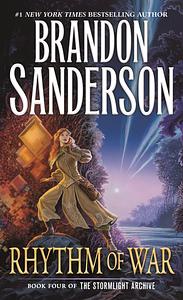Take a photo of a barcode or cover
adventurous
emotional
funny
hopeful
inspiring
slow-paced
Plot or Character Driven:
A mix
Strong character development:
Yes
Loveable characters:
Yes
Diverse cast of characters:
Yes
Flaws of characters a main focus:
Yes
adventurous
dark
emotional
sad
tense
medium-paced
Plot or Character Driven:
A mix
Strong character development:
Yes
Loveable characters:
Yes
Diverse cast of characters:
Yes
Flaws of characters a main focus:
Yes
adventurous
challenging
dark
emotional
hopeful
mysterious
sad
tense
slow-paced
Plot or Character Driven:
A mix
Strong character development:
Yes
Loveable characters:
Yes
Diverse cast of characters:
Yes
Flaws of characters a main focus:
Yes
adventurous
challenging
emotional
sad
slow-paced
Plot or Character Driven:
Character
Strong character development:
Yes
Loveable characters:
Complicated
Diverse cast of characters:
Yes
Flaws of characters a main focus:
Yes
adventurous
medium-paced
Plot or Character Driven:
Plot
Strong character development:
Yes
Loveable characters:
Yes
Diverse cast of characters:
Yes
Flaws of characters a main focus:
Yes
adventurous
medium-paced
Plot or Character Driven:
A mix
Strong character development:
Yes
Loveable characters:
Yes
Flaws of characters a main focus:
Yes
adventurous
emotional
hopeful
tense
medium-paced
Plot or Character Driven:
A mix
Strong character development:
Yes
Loveable characters:
Yes
Diverse cast of characters:
Yes
Flaws of characters a main focus:
Yes
The callbacks. The payoffs. I can see the weakness in the handling of the flashback povs, but understand how deeply necessary the perspectives are to the overarching narrative rhythm. And I would follow Navani Kholin down any academic rabbit hole.
adventurous
emotional
hopeful
mysterious
tense
slow-paced
Plot or Character Driven:
A mix
Strong character development:
Yes
Loveable characters:
Yes
Diverse cast of characters:
Yes
Flaws of characters a main focus:
Complicated
This one might be the better books in the series for me.
Largely solved my issues with the last one and the stakes got a lot more personal again. I loved the mental health journeys that Shallan and Kaladin went on. Still didn't quite hit like the first two, although I have high expectations that book 5 will be pretty epic.
Sidenote: This might be the first book I've read to have an explicitly asexual character. Pretty cool, and frankly a good move for Sanderson who can't write romance or sexual tension to save his life. I wish all his characters were ace.
Sidenote: This might be the first book I've read to have an explicitly asexual character. Pretty cool, and frankly a good move for Sanderson who can't write romance or sexual tension to save his life. I wish all his characters were ace.






